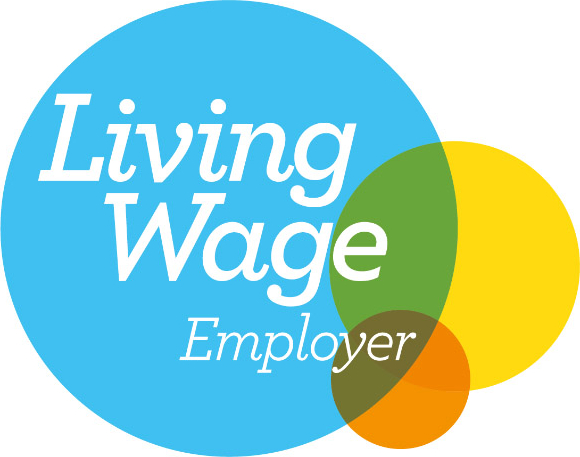Criticism of the National Health Service (England)
- 회사명 HX
- 부서명
- 직책
- 이름 Archer
- 전화번호 7886433094-7886433094-7886433094
- 팩스번호 --
- 휴대폰번호 JH-RI-NO
- 이메일
-
주소 ()
- 발주처
- 공사명
- 규격 | 수량규격 : | 수량 :
- 문의종류
- 등록일 25-07-04 22:01
Criticism of the National Health Service (England) consists of problems such as access, waiting lists, healthcare coverage, and various scandals. The National Health Service (NHS) is the publicly funded healthcare system of England, produced under the National Health Service Act 1946 by the post-war Labour federal government of Clement Attlee. It has actually come under much criticism, especially during the early 2000s, due to break outs of antibiotic resistant infections such as MRSA and Clostridioides difficile infection, waiting lists, and medical scandals such as the Alder Hey organs scandal. However, the involvement of the NHS in scandals extends back many years, including over the provision of psychological health care in the 1970s and 1980s (eventually part of the reason for the Mental Health Act 1983), and overspends on medical facility newbuilds, consisting of Guy's Hospital Phase III in London in 1985, the cost of which shot up from ₤ 29 million to ₤ 152 million. [1]
Access controls and waiting lists
In making healthcare a largely "invisible expense" to the patient, healthcare seems to be efficiently complimentary to its customers - there is no particular NHS tax or levy. To minimize expenses and ensure that everyone is treated equitably, there are a variety of "gatekeepers." The general specialist (GP) operates as a main gatekeeper - without a referral from a GP, it is frequently difficult to gain greater courses of treatment, such as a visit with a consultant. These are argued to be essential - Welshman Bevan kept in mind in a 1948 speech in your home of Commons, "we will never ever have all we require ... expectations will constantly surpass capacity". [2] On the other hand, the national health insurance coverage systems in other nations (e.g. Germany) have actually given with the requirement for recommendation; direct access to an expert is possible there. [3]
There has been issue about opportunistic "health tourists" travelling to Britain (mostly London) and utilizing the NHS while paying nothing. [4] British people have been known to travel to other European nations to make the most of lower costs, and since of a worry of hospital-acquired incredibly bugs and long waiting lists. [5]
NHS gain access to is therefore controlled by medical priority instead of price system, causing waiting lists for both consultations and surgery, as much as months long, although the Labour federal government of 1997-onwards made it among its crucial targets to lower waiting lists. In 1997, the waiting time for a non-urgent operation might be 2 years; there were ambitions to minimize it to 18 weeks despite opposition from physicians. [6] It is contested that this system is fairer - if a medical complaint is severe and dangerous, a patient will reach the front of the queue quickly.
The NHS determines medical need in regards to quality-adjusted life years (QALYs), an approach of quantifying the advantage of medical intervention. [7] It is argued that this method of assigning health care suggests some clients need to lose in order for others to gain, which QALY is a crude method of making life and death decisions. [8]
Hospital acquired infections

There have been several fatal outbreaks of antibiotic resistant germs (" incredibly bugs") in NHS healthcare facilities, such as Methicillin-resistant Staphylococcus aureus (MRSA), vancomycin-resistant Enterococcus and Clostridioides difficile infection. [9] This has led to criticism of requirements of hygiene across the NHS, with some patients buying private health insurance coverage or taking a trip abroad to prevent the perceived hazard of catching a "incredibly bug" while in health center. However, the department of health vowed ₤ 50 million for a "deep clean" of all NHS England medical facilities in 2007. [10]
Coverage

The lack of availability of some treatments due to their perceived poor cost-effectiveness in some cases leads to what some call a "postcode lottery game". [11] [12] The National Institute for Health and Care Excellence (NICE) are the first gatekeeper, and analyze the cost effectiveness of all drugs. Until they have provided guidance on the expense and effectiveness of new or expensive medications, treatments and procedures, NHS services are unlikely to offer to fund courses of treatment. The very same of real of the Scottish Medicines Consortium, NICE's equivalent in Scotland. [13]
There has actually been significant debate about the general public health financing of costly drugs, especially Herceptin, due to its high cost and viewed restricted general survival. The project waged by cancer patients to get the government to pay for their treatment has actually gone to the greatest levels in the courts and the Cabinet to get it certified. [14] [15] The House of Commons Health Select Committee criticised some drug companies for bringing in drugs that cost on and around the ₤ 30,000 limit that is considered the optimum worth of one QALY in the NHS.

Private Finance Initiative

Before the concept of private finance effort (PFI) came to prominence, all brand-new hospital building was by convention funded from the Treasury, as it was believed it was best able to raise money and able to control public sector expense. In June 1994, the Capital Investment Manual (CIM) was published, setting out the regards to PFI agreements. The CIM made it clear that future capital projects (building of new centers) needed to look at whether PFI was preferable to utilizing public sector funding. By the end of 1995, 60 relatively small tasks had been prepared for, at a total expense of around ₤ 2 billion. Under PFI, structures were constructed and serviced by the personal sector, and then leased back to the NHS. The government elected under Tony Blair in 1997 welcomed PFI projects, thinking that public spending required to be curtailed. [16]
Under the private finance effort, an increasing variety of health centers have been constructed (or rebuilt) by private sector consortia, although the government likewise motivated economic sector treatment centres, so called "surgicentres". [17] There has actually been significant criticism of this, with a study by a consultancy company which works for the Department of Health showing that for each ₤ 200 million invested on privately funded healthcare facilities the NHS loses 1000 doctors and nurses. The very first PFI health centers include some 28% fewer beds than the ones they changed. [18] As well as this, it has been kept in mind that the return for building companies on PFI agreements could be as high as 58%, and that in financing hospitals from the personal rather than public sector cost the NHS practically half a billion pounds more every year. [19]
Scandals
Several high-profile medical scandals have actually occurred within the NHS over the years, such as the Alder Hey organs scandal and the Bristol heart scandal. At Alder Hey Children's Hospital, there was the unauthorised elimination, retention, and disposal of human tissue, including kids's organs, in between 1988 and 1995. The main report into the event, the Redfern Report, revealed that Dick van Velzen, the Chair of Foetal and Infant Pathology at Alder Hey, had actually purchased the "dishonest and unlawful stripping of every organ from every child who had actually had a postmortem." In reaction, it has actually been argued that the scandal brought the issue of organ and tissue contribution into the public domain, and highlighted the benefits to medical research study that result. [20] The Gosport War Memorial Hospital scandal of the 1990s regarded opioid deaths. [21]
The Stafford Hospital scandal in Stafford, England in the late 2000s concerned abnormally high mortality rates amongst clients at the health center. [22] [23] Up to 1200 more patients died between 2005 and 2008 than would be anticipated for the type and size of healthcare facility [24] [25] based on figures from a death model, but the final Healthcare Commission report concluded it would be misguiding to connect the inadequate care to a specific number or variety of varieties of deaths. [26] A public inquiry later on revealed numerous circumstances of overlook, incompetence and abuse of patients. [27]
" Lack of self-reliance of examining for security and physical fitness for function"
Unlike in Scotland and Wales which have actually devolved healthcare, NHS England is operated on behalf of the taxpayer by the UK Parliament and the Department of Health, at the head of which is the Secretary of State for Health.
The group charged in England and Wales with checking if the care provided by the NHS is genuinely safe and suitable for function is the Care Quality Commission, or CQC. Although the CQC explains itself as the "independent regulator of all health and social care services in England" [1], it remains in fact "accountable to the public, Parliament and the Secretary of State for Health." [2] Archived 31 August 2013 at the Wayback Machine and much of its financing comes from the taxpayer. At least one chairman, one chief executive [3] and a board member [4] of the CQC have been singled out for attention by a UK Secretary of State for Health.
There is for that reason the capacity for a dispute of interest, as both the NHS and the CQC have the exact same leadership and both are extremely vulnerable to political disturbance.
In April 2024, Health Secretary Victoria Atkins advised NHS England to prioritize evidence and security in gender dysphoria treatment following issues raised by the Cass Review. NHS required cooperation from adult clinics and initiated a review, with Labour supporting evidence-based care. Momentum criticized constraints on gender-affirming care, while Stonewall invited the review's focus on kids's well-being. [28] [29]
See likewise

National Health Service
List of hospitals in England
Healthcare in the UK
Private Finance Initiative
Care Quality Commission
Notes

^ Rivett, Geoffrey (1998 ). From Cradle to Grave: 50 years of the NHS. Kings Fund. p. 437. ISBN 1-85717-148-9.
^ "TCSR 07 - Health: The Public Expects". theinformationdaily.com. 24 September 2007. Archived from the initial on 22 August 2014. Retrieved 9 December 2007.
^ Schneider, Antonius; Donnachie, Ewan; Tauscher, Martin; Gerlach, Roman; Maier, Werner; Mielck, Andreas; Linde, Klaus; Mehring, Michael (9 June 2016). "Costs of coordinated versus uncoordinated care in Germany: outcomes of a routine information analysis in Bavaria". BMJ Open. 6 (6 ): e011621. doi:10.1136/ bmjopen-2016-011621. PMC 4908874. PMID 27288386.
^ "Tougher rules to make sure that people do not abuse NHS services". Medical News Today. 26 April 2004. Archived from the initial on 8 December 2008. Retrieved 9 December 2007.
^ "Health tourists could get refund". BBC News Online. 7 December 2007. Retrieved 9 December 2007.
^ Jones, George (21 February 2007). "Doctors assault Blair's waiting list promise". The Daily Telegraph. London. Archived from the initial on 25 February 2007. Retrieved 9 December 2007.
^ "Quality Adjusted Life Years (QALYs)". National Library for Health. March 2006. Archived from the initial on 19 April 2013. Retrieved 9 December 2007.
^ "So what is a QALY?". Bandolier. Archived from the original on 15 April 2008. Retrieved 9 December 2007.
^ "Do health centers make you ill?". BBC News. 31 January 2019.
^ "Hospital deep cleaning under fire". 14 January 2008.
^ "NHS 'postcode lottery'". politics.co.uk. 9 August 2006. Archived from the original on 7 September 2007. Retrieved 9 December 2007.
^ "Why some drugs are not worth it". BBC News. 9 March 2005. Retrieved 4 December 2007.
^ "Cancer drug turned down for NHS usage". BBC News Online. 9 July 2007. Retrieved 4 December 2007.
^ "Q&A: The Herceptin judgement". BBC News. 12 April 2006. Retrieved 15 September 2006.
^ "Update on Herceptin appraisal". National Institute for Health and Clinical Excellence. Archived from the initial on 13 December 2006. Retrieved 1 December 2006.
^ Rivett, Geoffrey (1998 ). From Cradle to Grave: 50 years of the NHS. Kings Fund. p. 437. ISBN 1-85717-148-9.
^ "New generation surgery-centres to bring out thousands more NHS operations every year". Department of Health. 3 December 2002. Archived from the initial on 5 March 2007. Retrieved 15 September 2006.
^ George Monbiot (10 March 2002). "Private Affluence, Public Rip-Off". The Spectator. Retrieved 7 September 2006.
^ PublicFinance.co.uk. "PFI healthcare facilities 'costing NHS additional ₤ 480m a year'". Retrieved 3 December 2014.
^ Dixon, B. (19 March 2001). "Checks and balances needed for organ retention". Current Biology. 11 (5 ): R151 - R152. Bibcode:2001 CBio ... 11. R151D. doi:10.1016/ S0960-9822( 01 )00078-1. PMID 11267877.
^ "Gosport health center deaths: Police corruption probe flawed, guard dog states". BBC News. 14 October 2021. Retrieved 8 December 2024.
^ Nick Triggle (6 February 2013). "Stafford Hospital: Hiding mistakes 'must be criminal offence'". BBC. Retrieved 9 February 2013.
^ Robert Francis QC (6 February 2013). Report of the Mid Staffordshire NHS Foundation Trust Public Inquiry (Report). House of Commons. ISBN 9780102981476. Retrieved 9 February 2013.
^ Smith, Rebecca (18 March 2009). "NHS targets 'may have resulted in 1,200 deaths' in Mid-Staffordshire". London: The Daily Telegraph. Archived from the initial on 21 March 2009. Retrieved 9 November 2010.
^ Emily Cook (18 March 2009). "Stafford healthcare facility scandal: Approximately 1,200 may have died over "shocking" patient care". Daily Mirror. Retrieved 6 May 2009.
^ "How lots of people passed away "unnecessarily" at Mid Staffs". Full Fact. 7 March 2013. Retrieved 29 May 2015.
^ Sawer, Patrick; Donnelly, Laura (2 October 2011). "Boss of scandal-hit healthcare facility escapes interrogation". The Daily Telegraph. London. Archived from the initial on 3 October 2011.
^ "Minister tells NHS to 'end culture of secrecy' on gender care as focus shifts to adult centers". Morning Star. 11 April 2024. Retrieved 15 April 2024.
^ "NHS England should end 'culture of secrecy' in kids's gender care". The National. 11 April 2024. Retrieved 15 April 2024.
References
Rivett, Geoffrey (1998 ). From Cradle to Grave: 50 years of the NHS. Kings Fund. ISBN 1-85717-148-9.
External links
NHS.
Further reading
Pollock, Allyson (2004 ). NHS plc: the privatisation of our healthcare. Verso. ISBN 1-84467-539-4.
Mandelstam, Michael (2006 ). Betraying the NHS: Health Abandoned. Jessica Kingsley Publishing. ISBN 1-84310-482-2.


